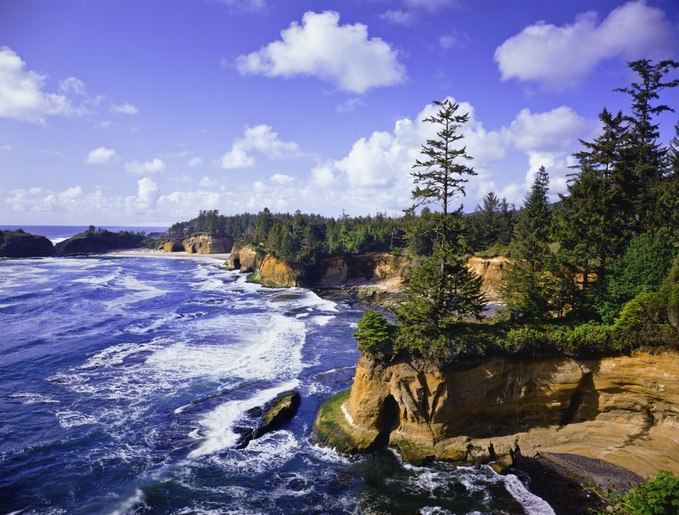Benefits of Owning an Electric Vehicle in the Pacific Northwest
July 20, 2023
Picture yourself cruising through the lush landscapes of the Pacific Northwest, all while enjoying the numerous benefits of owning an electric vehicle (EV). The scent of towering pine trees fills the air as you navigate winding roads that lead to breathtaking destinations like Mount Rainier or Crater Lake. As you glide silently along, powered solely by electricity, you can’t help but feel a sense of harmony with nature.
With an EV in tow, your journey becomes part of a sustainable adventure that aligns with the region’s commitment to environmental conservation.
The Pacific Northwest has emerged as a hotbed for electric vehicles due to its forward-thinking mindset and emphasis on sustainability. Both Washington and Oregon have made remarkable progress in promoting EV adoption through various initiatives such as generous incentives, robust charging infrastructure networks, and partnerships with automakers to expand model availability.
As residents throughout these states witness firsthand how greener transportation options contribute to cleaner air quality and reduced carbon emissions, it’s no surprise that EV ownership has been steadily gaining traction here. In fact, according to recent reports from industry experts, sales of electric vehicles have surged significantly over the past few years across Washington and Oregon – making it clear that driving an EV is not just a trend but rather a conscious choice towards building a more environmentally friendly future for our beautiful region.
Environmental Advantages of Owning an EV In Portland and Vancouver
One of the significant advantages of owning an electric vehicle (EV) in the Pacific Northwest is its contribution to reducing greenhouse gas emissions, leading to cleaner air and a healthier environment. Traditional gasoline-powered vehicles emit harmful pollutants such as carbon dioxide (CO2), nitrogen oxides (NOx), and particulate matter, which have detrimental effects on both human health and our planet’s climate.
By opting for an EV, you significantly reduce your carbon footprint since these vehicles produce zero tailpipe emissions. Instead of relying on fossil fuels, EVs run on electricity stored in their batteries, resulting in lower CO2 emissions during operation. Moreover, as Washington and Oregon continue their transition towards renewable energy sources like wind, solar power, and hydropower generation, charging your EV becomes even more eco-friendly. Plugging into the electrical grid means tapping into these clean energy resources instead of relying solely on traditional electricity generated from coal or natural gas.
The Pacific Northwest has shown a remarkable commitment to sustainable energy practices by steadily increasing its use of renewable resources over the years. Both Washington and Oregon have implemented policies aimed at reducing reliance on non-renewable fuel sources while encouraging investments in clean energy infrastructure. In fact, this region boasts some of the highest percentages of renewable energy generation in the country.
With a vast landscape dotted with wind farms harnessing strong coastal gusts and hydroelectric dams utilizing powerful rivers like the Columbia or Snake River system – it’s clear that transitioning to electric transportation aligns perfectly with this green ethos found throughout the Pacific Northwest. So when you charge your EV here, you can feel confident knowing that you are supporting a regional commitment to sustainability while driving towards a greener future.
Savings from owning an EV
One of the most compelling reasons to own an electric vehicle (EV) in the Pacific Northwest is the potential for significant cost savings. Here’s a quick summary:
Firstly, electricity is generally cheaper than gasoline, resulting in substantial savings at the pump. EVs are much more efficient compared to traditional combustion engine vehicles when it comes to converting energy into miles driven. This means that you can travel farther on a dollar’s worth of electricity compared to a gallon of gas.
Additionally, both Washington and Oregon offer various tax credits, rebates, and incentives that can further lower upfront costs associated with purchasing an EV. These incentives aim to encourage more people to make the switch from conventional vehicles to cleaner alternatives.
For example, Washington offers sales tax exemptions on new EV purchases and provides financial assistance through its Clean Energy Fund. On top of that, there are federal tax credits available for qualifying EVs which can offset some of your initial expenses.
Oregon also provides attractive incentives such as rebates for purchasing or leasing eligible electric vehicles through its Clean Vehicle Rebate Program (CVRP). The state also has income tax credits available for residential charging infrastructure installation costs.
By taking advantage of these incentives along with the cost savings from using electricity instead of gasoline, owning an electric vehicle in the PNW becomes not only environmentally friendly but also financially beneficial. It’s a win-win situation where you save money while reducing your carbon footprint!
Longterm maintenance savings that come with owning an EV
Compared to traditional combustion engines, electric vehicles (EVs) have fewer moving parts, which translates to reduced maintenance costs over time. Conventional internal combustion engines are complex machines with numerous components that require regular maintenance and potential repairs. On the other hand, EVs have a simpler drivetrain consisting of an electric motor and a battery pack. With fewer parts prone to wear and tear or mechanical failure, EV owners can expect lower maintenance expenses in the long run.
Moreover, many automakers offer extended warranties on crucial components like batteries for added peace of mind. The battery is one of the most expensive parts of an electric vehicle, but it’s also one that manufacturers understand as being vital to the car’s performance and longevity. Recognizing this importance, they often provide extended warranties specifically tailored for these essential components.
These extended warranties cover defects in materials or workmanship beyond the standard warranty period and ensure that if anything goes wrong with your EV’s battery within a specified timeframe, you’re protected from bearing those substantial repair or replacement costs yourself. This additional coverage not only offers financial security but also instills confidence in choosing an electric vehicle by providing reassurance about its durability and reliability.
Owning an EV means enjoying reduced maintenance costs due to their simplified construction compared to traditional combustion engines. Additionally, manufacturers’ provision of extended warranties on significant components such as batteries adds another layer of protection against unexpected repair expenses—making driving an electric vehicle both cost-effective and worry-free when it comes to long-term ownership.
Wrap Up
In conclusion, owning an electric vehicle (EV) in the Pacific Northwest offers a multitude of benefits. Not only do EVs contribute to cleaner air and a healthier environment by reducing greenhouse gas emissions, but they also align with the region’s commitment to sustainability and renewable energy. With access to generous incentives, robust charging infrastructure networks, and partnerships with automakers, the Pacific Northwest has become a hotbed for EV adoption. Additionally, EV owners in the PNW can enjoy significant cost savings, both in terms of fuel expenses and through various tax credits and rebates. With reduced maintenance costs and extended warranties on crucial components, owning an EV in the Pacific Northwest is not only financially beneficial but also worry-free. By making the switch to an EV, you can support the local economy and be part of a greener future for our beautiful region.
Contact Us


